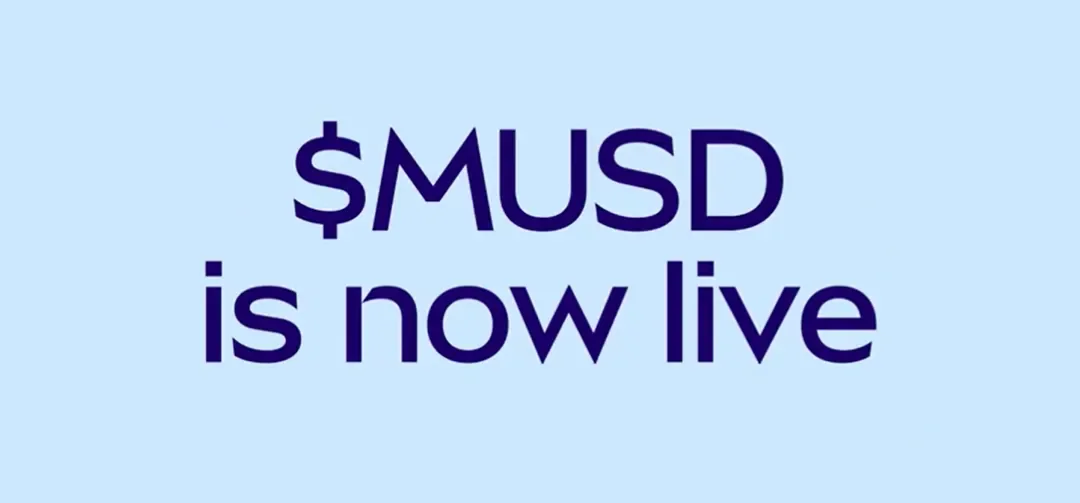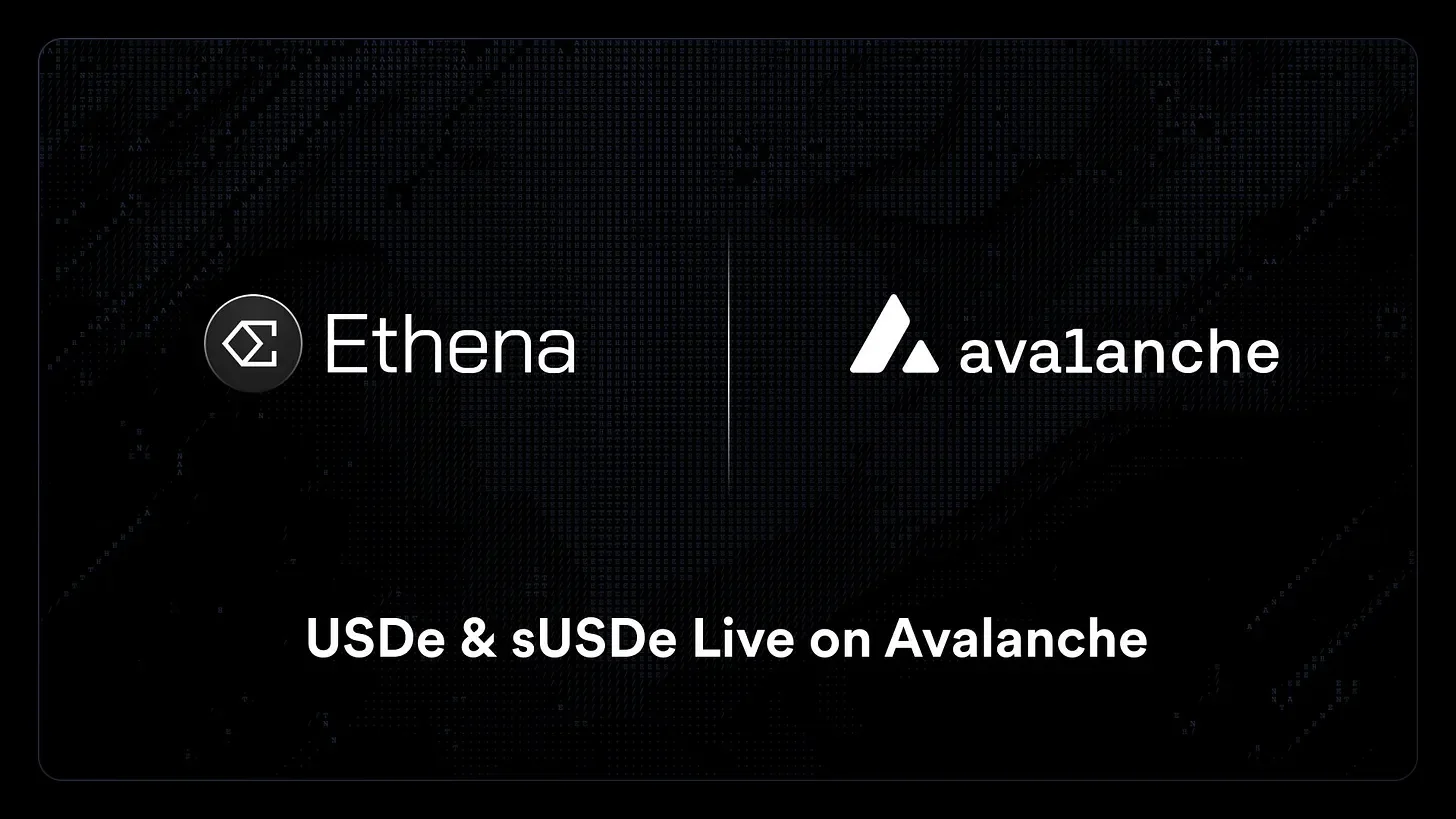Boros Launches v1, Hyperliquid Native Market Wins USDH Proposal, MetaMask Launches Stablecoin, and many more...
Launches 🚀
MetaMask launched MetaMask USD (mUSD), introducing a native stablecoin integrated across its wallet ecosystem. The token offers liquidity and incentives on Linea, low-cost fiat onramps, and compatibility with MetaMask’s Swap and Bridge functions.
mUSD can also be spent globally via the MetaMask Card, which is accepted at over 150 million merchants.
Boros has officially launched v1.0, introducing its referral program while scaling up capacity and leverage for traders. In just one month of soft launch, the protocol for funding rates trading has seen $60M in open interest, nearly $1B in notional volume, and $730K in annualized revenue. With OI and vault caps doubled, Hyperliquid leverage raised to 2x, and new features like leaderboards and copy-trading on the way, Boros is aiming to capture a share of the $200B perp market.
All protocol value ultimately accrues to $PENDLE, reinforcing Pendle’s role as the core beneficiary of Boros’s growth.
TermMax launched V2, redesigning fixed-rate lending with new features to boost efficiency. The upgrade introduces composable base yields, atomic orders to unify liquidity, and smart unwind for early exits, while an order aggregator ensures best execution across positions.
The new Alpha Zone allows anyone to launch custom markets, expanding utility for emerging assets.
MANTRA Chain has launched MultiVM, becoming the first Layer 1 to natively support both EVM and CosmWasm smart contracts. With protocol-level compliance backed by its VARA Dubai VASP license, institutions can deploy Solidity dApps without code changes, fork DeFi protocols for RWAs, and bridge funds seamlessly—all while meeting regulatory standards.
Polymarket has introduced trading on company earnings, allowing users to speculate on outcomes tied to quarterly results. These markets are available globally but are not accessible to US traders.
Google has launched an open-source AI payments protocol designed to let AI applications send and receive money seamlessly, with support for both traditional rails like credit cards and stablecoins. Built with input from over 60 organizations, including Salesforce, American Express, and Etsy, the protocol integrates stablecoin compatibility through partnerships with Coinbase and the Ethereum Foundation. Google’s head of Web3 said the system was designed to bridge legacy payments with future rails, anticipating a world where AI agents transact directly with each other.
The move reflects growing Big Tech interest in stablecoins, with firms like Apple, Airbnb, Meta, and Shopify also exploring integrations.
The ERC-4626 Alliance has rebranded as the Tokenized Vault Foundation, expanding to include ERC-7540 for real-world assets and ERC-7575 for multi-asset support. Backed by major DeFi and TradFi players, the Foundation aims to steward open standards, drive adoption, and engage policymakers to position vaults as core programmable infrastructure bridging DeFi and traditional finance.
Perena launches USD STAR (USD*), redefined as a liquid savings token after previously serving as a stableswap LP asset. USD* now grows automatically from diversified low-risk yield sources while remaining fully liquid and composable across DeFi. The token is designed to be backed by tokenized Treasuries, RWAs, on-chain lending, and market-neutral strategies, with income accruing directly in its price.
Users can mint USD* with stablecoins, hold it to earn yield, and redeem at any time without lock-ups or extra staking.
Patagon Markets introduced its platform to simplify investing in private companies like OpenAI, Stripe, and SpaceX. The service aims to cut through opaque broker networks, reduce fees, verify share ownership, and provide transparent access to secondary markets.
Accredited investors can source deals across multiple venues, track holdings through Patagon’s portal, and access tools such as valuations, hedging, and lending against private stock.
Kalshi launched KalshiEco, a new hub to support builders, traders, and creators in advancing prediction markets. The initiative offers grants in partnership with Solana and Base, alongside perks such as referral links, trading competitions, engineering support, and promotional exposure. Applications are open for both builders and content creators.
Updates 📰
Ethena Labs deployed USDe and sUSDe on Avalanche, making its assets available for use across major lending and trading applications on the network. The launch also enables eligible DeFi activity with these assets on Avalanche to earn both AVAX rewards and Ethena Points.
The Ethereum Foundation announced the formation of a decentralized AI (dAI) team to position Ethereum as the settlement and coordination layer for AI and the machine economy. The team will focus on enabling AI agents to transact and coordinate on Ethereum while building an open, censorship-resistant decentralized AI stack.
Current priorities include advancing ERC-8004, a standard for proving AI agent identity and trustworthiness, alongside broader support for AI-related upgrades and public goods.
Native Markets announced it has been awarded the USDH ticker on Hyperliquid following validator and HYPE staker reviews of competing proposals. The team plans to deploy both the USDH HIP-1 and its ERC-20 version within days, starting with a testing phase for capped mints and redeems, followed by full access and the introduction of a USDH/USDC spot market.
Base announced the launch of a new bridge connecting Base and Solana. The team said the initiative is aimed at fostering interoperability across blockchains to support a more open and connected global economy.
Based introduced Basedpad, a zero-fee public launchpad built on Hyperliquid. The platform will also provide whitelist access for loyal Based and Hyperliquid supporters.
Helius Medical Technologies (NASDAQ: HSDT), in partnership with Pantera Capital and Summer Capital, announced over $500M in funding to establish a Solana-focused treasury company, with potential expansion to $1.25B. The initiative positions SOL as the firm’s primary reserve asset, leveraging its ~7% native staking yield and broad DeFi ecosystem.
Circle has launched native USDC and CCTP V2 on HyperEVM, expanding stablecoin access within Hyperliquid’s ecosystem. Developers and institutions can now use fully reserved, regulated USDC with institutional on/off-ramps via Circle Mint and cross-chain deposits from over a dozen blockchains. Day 1 partners include HyperBeat, Across, Felix Protocol, Hyperdrive, Hyperlend, Stargate, and Wormhole.
The next phase will connect HyperEVM directly to HyperCore, enabling seamless USDC deposits and withdrawals into Hyperliquid’s spot and perpetual markets.
INFINIT expanded its V2 Public Beta to Arbitrum, integrating with the chain’s new DRIP incentive program. The platform enables users to execute multi-step leveraged looping strategies—such as weETH/ETH and sUSDS/USDC loops—through one-click execution powered by INFINIT’s AI Agent Swarm.
By packaging complex workflows into transparent, automated strategies, INFINIT aims to give users an edge in accessing Arbitrum DRIP rewards efficiently.
USDT0 has gone live on Backpack across Polygon, Arbitrum, and Sei, bringing unified omnichain liquidity for USDT within the wallet and exchange. This integration makes the world’s largest stablecoin seamlessly accessible to Backpack users.
Falcon Finance has created the FF Foundation, an independent entity with full authority over all $FF tokens. The foundation will oversee token unlocks and distributions on a fixed schedule, separating governance from protocol development to ensure fairness, consistency, and protection of user and ecosystem interests.
Project X launched Phase 2, enabling 0% fee trading for any coin across chains. Users can now trade directly with no hidden costs, earn points on every trade, and bridge from 50+ chains into HyperEVM at no extra fees. Liquidity providers benefit as swaps with minimal rate differences are routed through PRJX pools.
The upgrade, built in partnership with Li.Fi Protocol, also ensures best rates on HyperEVM trades. Phase 3 is teased as the next major step.
LayerZero introduced Fast Swaps through Stargate, transforming it from a bridge into a full value interface. The upgrade enables sub-second quotes, guaranteed pricing, and one-second execution for both local and cross-chain swaps, making Stargate a faster, more seamless way to move value.
Orderly has launched multi-collateral trading on Solana, allowing users to post SOL and USDT as collateral. It’s the first DeFi protocol to offer multi-collateral perps across both Solana and EVM.
Velora (formerly ParaSwap) has launched its $VLR token, with migration from $PSP, sePSP1, and sePSP2 now live. Holders can migrate directly at app.velora.xyz with gas fees covered, and stakers can migrate and stake seamlessly. Incentives for seVLR holders will follow soon.
YieldFi introduced a transparency dashboard for ETH and BTC vaults, detailing yield sources across protocols like Euler, KelpDAO, Pendle, and Equilibria. Current rates stand at 8.63% APY on ETH and 4.41% APY on BTC, with all strategies verifiable on-chain.
Circle announced that USDC and CCTP V2 are now live on the XDC Network, bringing the stablecoin to 26 blockchains with cross-chain transfers across 15. The integration enables XDC users to settle tokenized trade finance instruments, issue RWAs such as treasuries and real estate, and process low-cost enterprise payments.
Avalanche has integrated PayPal USD (PYUSD0) via LayerZero, bringing a permissionless, omnichain stablecoin to its network. Built with Paxos infrastructure and transferred using Stargate Hydra, PYUSD0 combines trusted dollar-backing with Avalanche’s sub-second finality, low fees, and scalable settlement.
Mass has launched its new Earn account, powered by Fluid, allowing users to park stablecoins and earn competitive DeFi yields directly from their phone. With this addition, Mass becomes the first all-in-one mobile fat-app, combining stocks, Hyperliquid perps, lending, borrowing, on/off-ramps, and now savings
Morpho has integrated with Coinbase to power USDC lending, enabling millions of users to earn sustainable yield backed by global borrowing demand directly within the Coinbase app. The product is curated by Steakhouse Financial and powered by Morpho.
Felix has enabled USDC on HyperEVM via Stargate and Across (using CCTP v2), allowing users to bridge USDC from other chains and borrow or lend on Felix Vanilla. While transfers between HyperCore and HyperEVM accounts aren’t live yet, Circle is working on the integration.
Supported collaterals for USDC borrowing include HYPE, kHYPE, and UBTC, with more to be added soon.
Term has launched on BNB Chain, bringing fixed-rate lending and borrowing to millions in the ecosystem, enabling users to access predictable on-chain yields with added confidence.
Tokemak has rebranded to Auto Finance (@autopools), consolidating its products under one identity focused on automating on-chain finance. The ecosystem will expand with Auto Pro for institutions, Auto App for retail users, and a new yield product.
TOKE will migrate 1:1 to AUTO, which will unify value accrual across all products.
Issues ⚠️
A hacker exploited Yala by minting 120M YU on Polygon, later bridging and selling 7.71M YU for 7.7M USDC across Ethereum and Solana. On-chain data shows the attacker still holds 22.29M YU on Solana and Ethereum, with another 90M YU remaining on Polygon, while 7.7M USDC was converted into 1,501 ETH and dispersed to multiple wallets.
Yala confirmed the breach, temporarily paused Convert and Bridge functions, and assured users that Bitcoin funds and other assets remain secure.
The team pledged to fully replenish drained pools to maintain a 1:1 YU–USDC peg, publish a roadmap for liquidity restoration and security upgrades within 48 hours, and is working with law enforcement on recovery.
Yala published its post-mortem report on the September 14 incident, confirming that no protocol vulnerability was exploited and all Bitcoin reserves remain secure. The team is committed to fully restoring liquidity and bringing YU back to its peg by September 23, 2025. Yala emphasized transparency, accountability, and ensuring all users are made whole.
Monero experienced an 18-block reorg, signaling a renewed attack on the network. Users accepting XMR were advised to wait for more than the usual 10 confirmations to mitigate risk.
Panoptic has completed its redistribution process after the rescue operation, finalizing balances from pre-rescue holdings. Claims are now live, with funds returned in-kind across chains. Users can redeem via the claim portal, while any issues should be reported through Discord support or email.
For sponsorships, questions, or news tips, reach us at: support@todayindefi.com
Today in DeFi Premium includes early looks at promising projects, yield farming tips and guides, and deep research to help you get the most out of DeFi.
We published exclusive contents that will assist you in navigating your decisions, and help you make money in the market:
Earn 20%+ Delta-Neutral APY With Stablecoins
Get a subscription with a credit card below, or pay in crypto for 2 months off a yearly subscription or $20 off a quarterly subscription.


